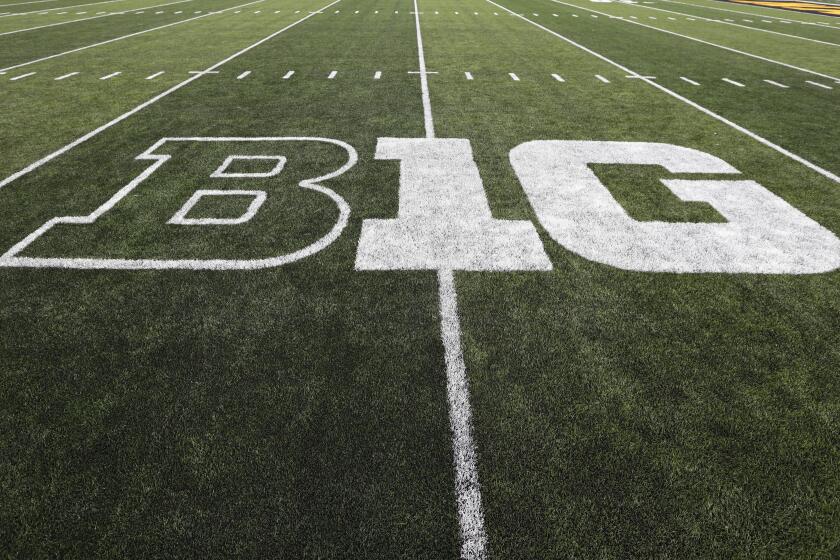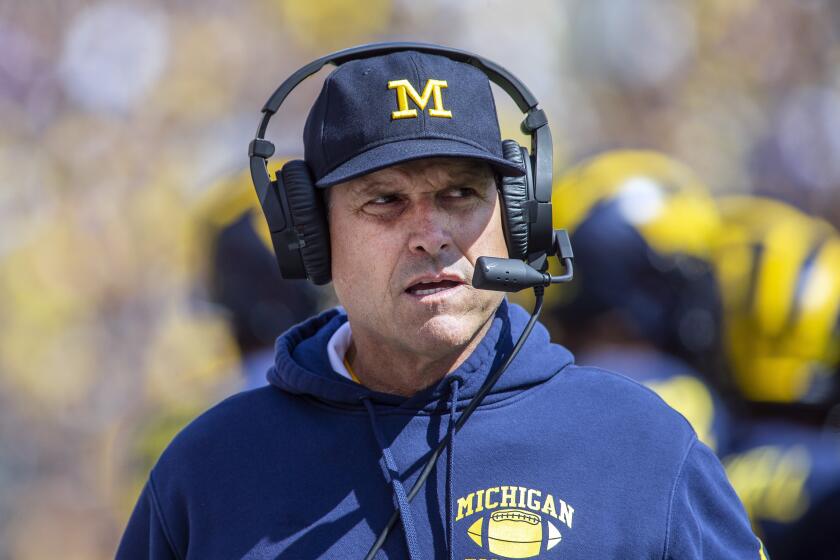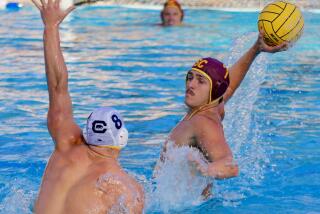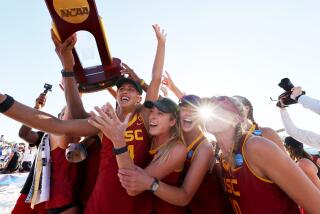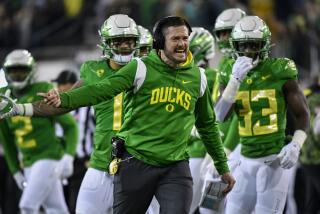Saturdays without football? Pac-12 and Big Ten canceling seasons leaves huge void
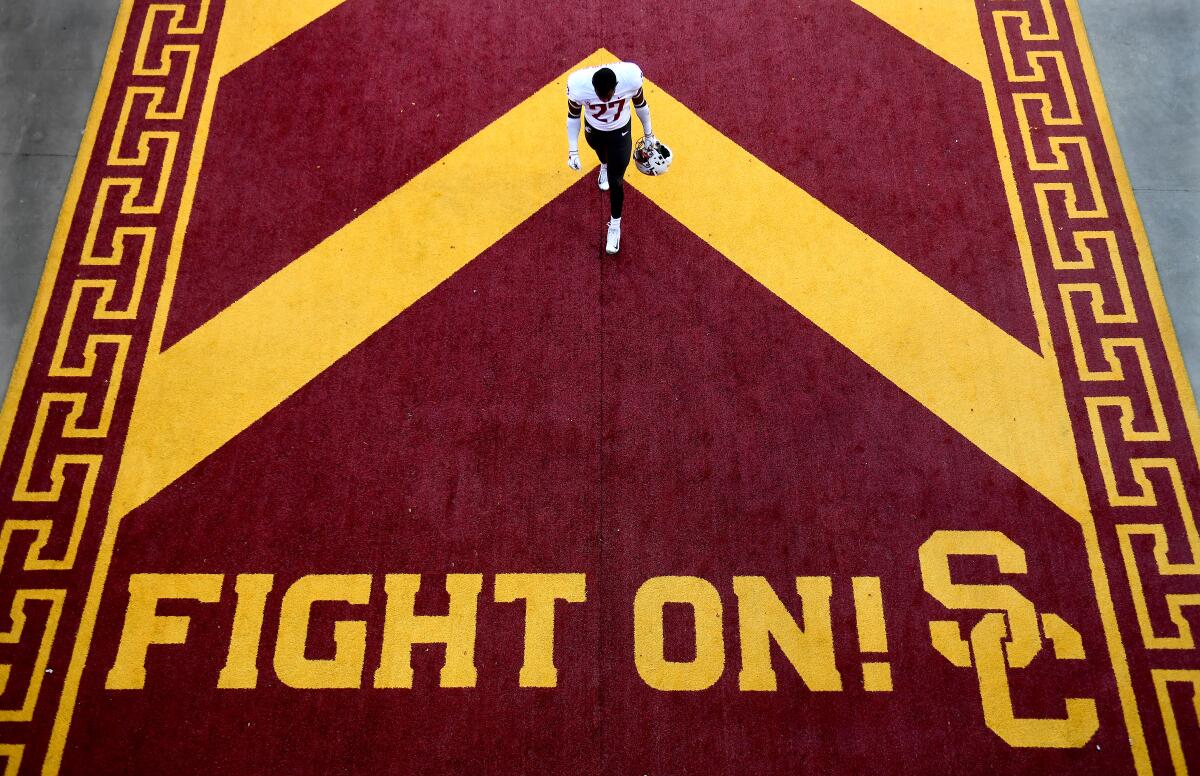
What is a fall Saturday without college football?
With Tuesday’s announcements that the Pac-12 and Big Ten conferences are canceling all fall sports — with the hope of moving their seasons to winter or spring — millions of fans on the West Coast and in the Midwest are about to find out. The rest of America might soon join them.
USC and UCLA haven’t missed a rivalry game in nearly a century. The Trojans and Bruins played amid the Great Depression and World War II. But with the start of football practice a week away in the Pac-12, the league’s presidents unanimously decided there was no option but to retreat in the face of the COVID-19 pandemic.
“Ever since this nightmare began, we have been talking about what we would do and how we would approach this in regards to intercollegiate athletics,” Oregon President Michael H. Schill said.
“One of the things that’s really important is that we are science-based, we are academics, we’re going to be looking at facts, not just opinions. At the same time, we fully understand this has tremendous human impacts. We have students whose dream was to play this year, and that dream, at least in the fall, is not going to happen.”
In a sport so popular that it has created a multibillion-dollar industry with head coaches making as much as $9 million per year, big decisions are still made by university presidents.
“We listened to all the views, and we determined there’s too much uncertainty right now,” Schill said. “We really thought this was the morally correct thing to do.”
The Big Ten became the first Power Five conference to postpone its fall football season because of the pandemic. It hopes to play in the spring.
The Pac-12 assembled a medical advisory committee in March when the NCAA shut down winter and spring sports. That group has been in near-constant contact, gathering research and hatching plans for how amateur sports could somehow be played during a pandemic.
With its football teams not having experienced any virus outbreaks, the league last month announced a revised conference-only schedule starting Sept. 26, building in flexibility for quarantine stoppages to complete a season by Dec. 19.
But in the last few days, the mood started to turn.
Information was brought forward about heart inflammation, or myocarditis, being a potential side effect of having COVID-19. In the Big Ten, Indiana freshman offensive lineman Brady Feeney went through “14 days of hell,” according to a Facebook post by his mother. Debbie Rucker said her son has experienced heart issues and that no matter how safe a school’s COVID-19 protocols might appear, “you CAN’T PROTECT THEM!!”
“There is some emerging data about some health risks that affect athletes, specifically cardiac side effects of COVID infections that we don’t know much about,” said Dr. Doug Aukerman, the Pac-12’s medical advisory chair and Oregon State’s senior associate athletic director for sports medicine.
The group noted three issues in its recommendation to delay the football season: Community spread of the coronavirus in the geographic areas encompassing the Pac-12 is still too high; the long-term impacts of myocarditis are unknown; and the current testing capacity, especially rapid point-of-care testing, is not sufficient..
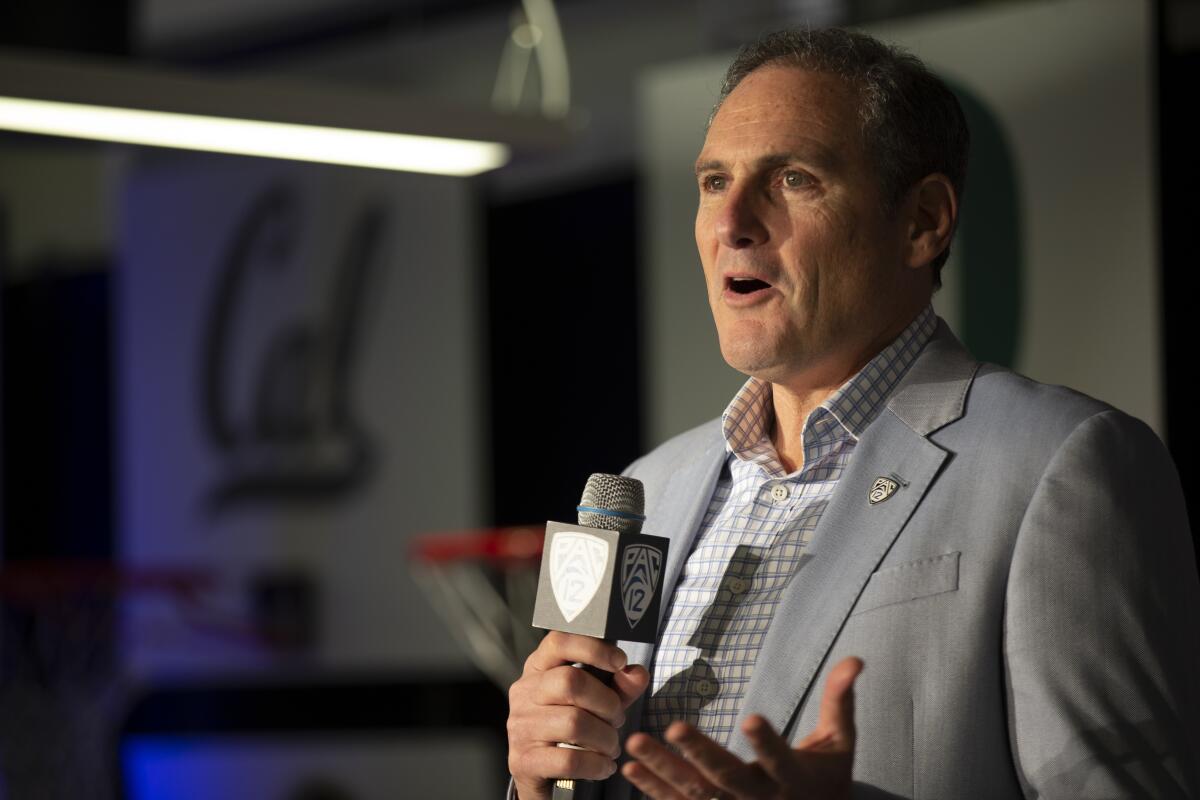
“Our student-athletes are students, and they’re going to go to the grocery store, to restaurants, and interact with the community,” Aukerman said. “It’s not appropriate to think we can bubble them and isolate them, and therefore we just felt it was very difficult to try and do this in a way that was safe enough.”
There are no guarantees that the challenges that have canceled the fall season can be solved by New Year‘s Day, the first date Big Ten or Pac-12 athletes now may be able to compete.
Many players earlier this month organized under #WeAreUnited and #WeWantToPlay social media hashtags in the hopes of pushing for better health and safety protections and the chance to form a players association.
In a statement released Tuesday, the #WeAreUnited athletes said: “After haphazardly trying to place the health of college athletes in jeopardy by having a season without safety mandates, the Pac-12 has now abruptly canceled the season with no transparency and no communication with the college athletes impacted.
“The Pac-12’s failures have made it clear that the time for change is now. The system is broken. College athletes deserve and need a real voice in the form of a players association,” the statement said. “It was obvious ... the Pac-12 was more concerned with stifling our ability to organize and in protecting the institution of exploiting college athletes than protecting our safety.”
The college football season is in serious peril because of the COVID-19 pandemic. But what spurred the Big Ten to push for the season to be canceled?
Even though several sports’ seasons will be delayed, Pac-12 Commissioner Larry Scott said that athletes will continue to receive their scholarships and that the conference will endorse the NCAA allowing fall sport athletes to recoup their lost eligibility, as the association decided for spring sports.
Not all conferences have felt a need to delay their sports schedules.
Late Tuesday, the Big 12 reportedly agreed to play during the fall. And at Atlantic Coast Conference power Florida State on Tuesday, school President John Thrasher was joined by Republican Gov. Ron DeSantis for a news conference that carried the sole purpose of advocating for fall football.
“We’re ready to play,” Thrasher said. “I plan on making sure that our friends in the [ACC] and frankly our friends in other conferences understand that student-athletes really do want to play football this year, and we ought to give them that opportunity.”
Former Florida State basketball player Michael Ojo, 27, died Friday of a heart attack. He recently had contracted COVID-19. Thrasher posted a picture of himself and Ojo on Twitter and said, “The FSU family is heartbroken by the passing of Michael Ojo. … I’ll never forget the big hug we shared when he walked across the stage at commencement.”
On Tuesday, Thrasher said he believes the ACC has an ally in the Southeastern Conference. One SEC-area politician agreed with Thrasher and DeSantis.
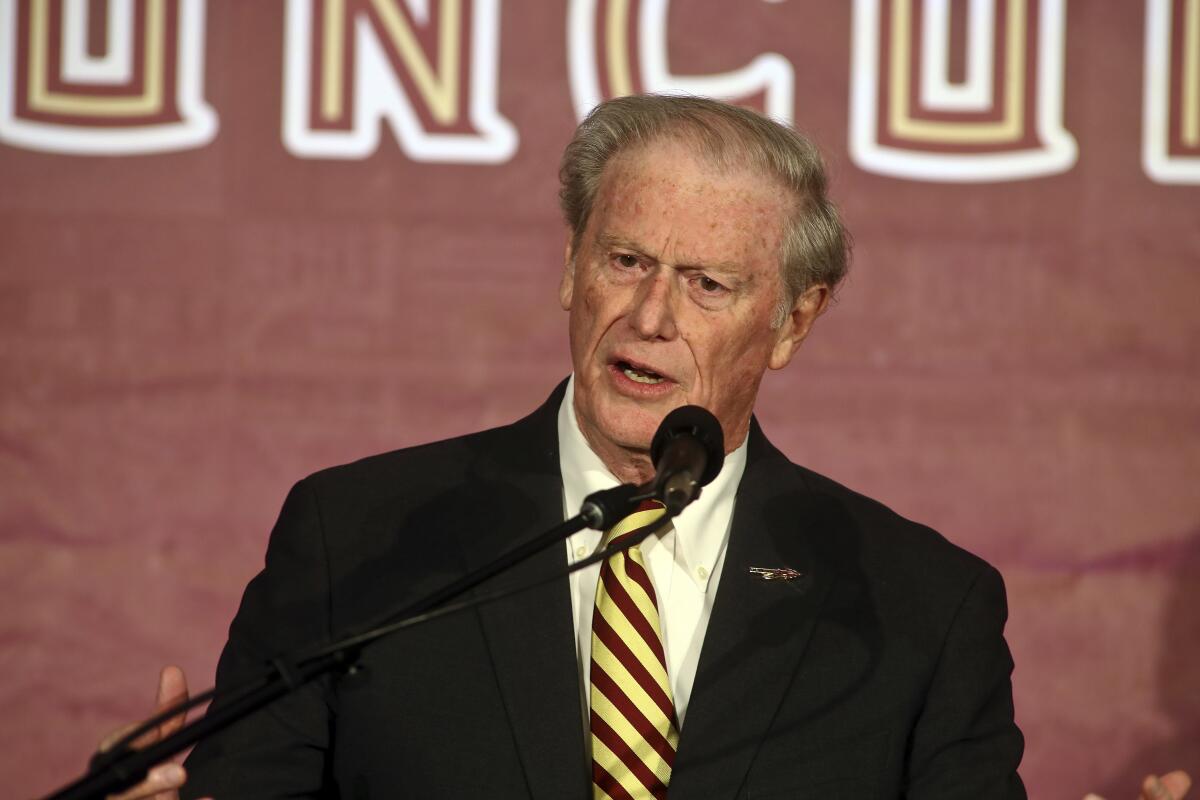
“College football is essential,” tweeted Mississippi Gov. Tate Reeves, a Republican. “There are forces who want to cancel everything to avoid risk at all societal costs. It’s foolish. We have to balance risks and costs. Conferences that completely cancel football are doing it because they’re scared of lawsuits and bad press — not because they’re worried about safety.”
It was Reeves who earlier this month mandated masks for his state by saying, “I want to see college football.”
The ACC and SEC’s medical advisory groups also appear to have a different interpretation of the science and data than their Pac-12 and Big Ten peers.
Dr. Cameron Wolfe, a Duke infectious disease expert who chairs the ACC’s group, told the Sports Business Journal: “You can’t tell me that running onto a football field is supposed to be a zero-risk environment. Look at all of the regular sporting injuries that we accept as a certain level of risk as part and parcel of football. Now the reality is that we have to accept a little bit of COVID risk to be a part of that.”
More to Read
Go beyond the scoreboard
Get the latest on L.A.'s teams in the daily Sports Report newsletter.
You may occasionally receive promotional content from the Los Angeles Times.

